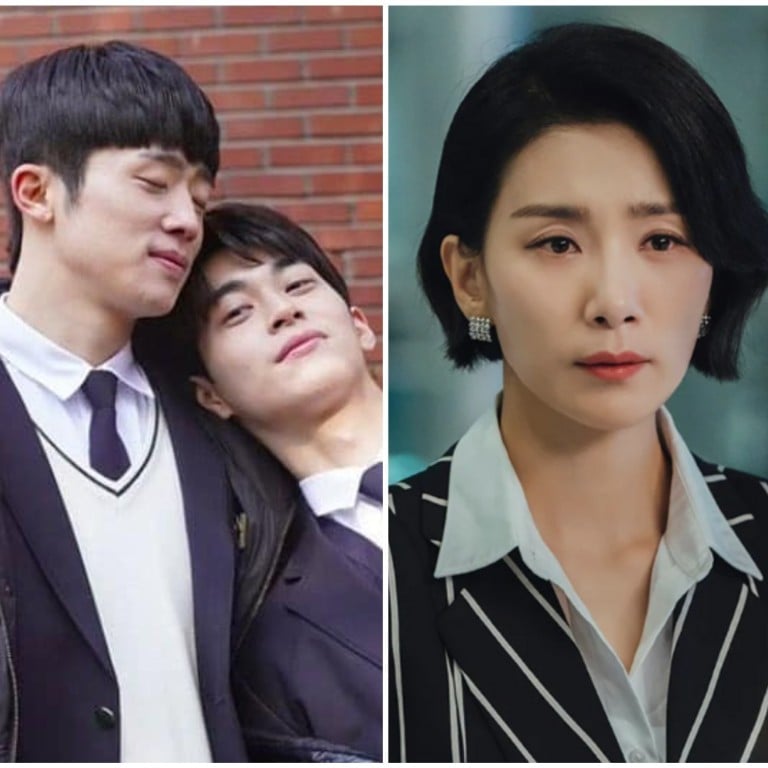Are LGBT K-dramas just queerbaiting? Shows like Netflix’s Vincenzo and Mine are featuring more gay characters but South Korea’s showbiz still has a way to go

- Korean films In Between Seasons and The Handmaiden earned rave reviews for authentic queer characters, but many K-dramas feature token or even negative portrayals – like Squid Game
- But media censorship is still a problem – a dance group performed a sanitised version of Lady Gaga’s anthem Born This Way for the New Year – and so is the lack of anti-discrimination laws
When we talk about LGBTQ+ representation in Korean pop culture, films have fared way better than the small screen. For example, two of 2016’s queer films, In Between Seasons and The Handmaiden, earned rave reviews from critics and audiences alike for their authentic storytelling, but K-dramas surprisingly lag behind. In general, the TV shows still perpetuate tired gender stereotypes and under-represent LGBTQ+ lives in their plots; if there are any queer characters, they are most likely to be token, inauthentic portrayals.

As Korean entertainment has risen to dominate global culture, catering to a wide, diverse range of global audiences, can beloved K-dramas truly promote better visibility for their LGBTQ+ characters, or will they merely capitalise on marginal communities by featuring them, just to be seen as “woke” and internationally appealing?
Here’s a quick look at the history, struggle and changes of LGBTQ+ representation in K-dramas.
Media censorship and public backlash

At the recent New Year’s Eve bell ringing ceremony in South Korea, dance group Lachica performed a watered-down version of Lady Gaga’s queer anthem Born This Way, which was met with an uproar from the community that embraced it. This version omitted the crucial lyrics, “No matter gay, straight or bi, lesbian, transgender life”, drawing accusations of LGBTQ+ erasure.
Media censorship is not uncommon in South Korea, especially when it comes to LGBTQ+ characters. In 2010, a romantic vow between two male characters in Life is Beautiful – regarded as Korea’s first drama to feature a gay couple – was censored after the church where the scene was filmed filed a complaint with SBS. The show’s progressive take on gay relationships also angered the public. A national mothers’ group ran a discriminatory newspaper advertisement that said, “When my son becomes gay and is inflicted with Aids watching Life is Beautiful, SBS should take the blame,” according to Korea JoongAng Daily.

Another example came in 2014 when JTBC received a warning from the Korea Communications Standards Commission after it showed two female high school students kissing in the drama Schoolgirl Detectives, saying the scene “broke moral standards”.
However, the censorship received some backlash as well. Life is Beautiful’s showrunner and veteran writer, Kim Soo-hyun, voiced her anger in Korea JoongAng Daily over the censorship on her show. “A cathedral is a place where even a murderer can find sanctuary – but I guess gays can’t. Actually, I was more angry at the television network, because it should be the one doing all it can to alleviate discrimination, not chickening out.”